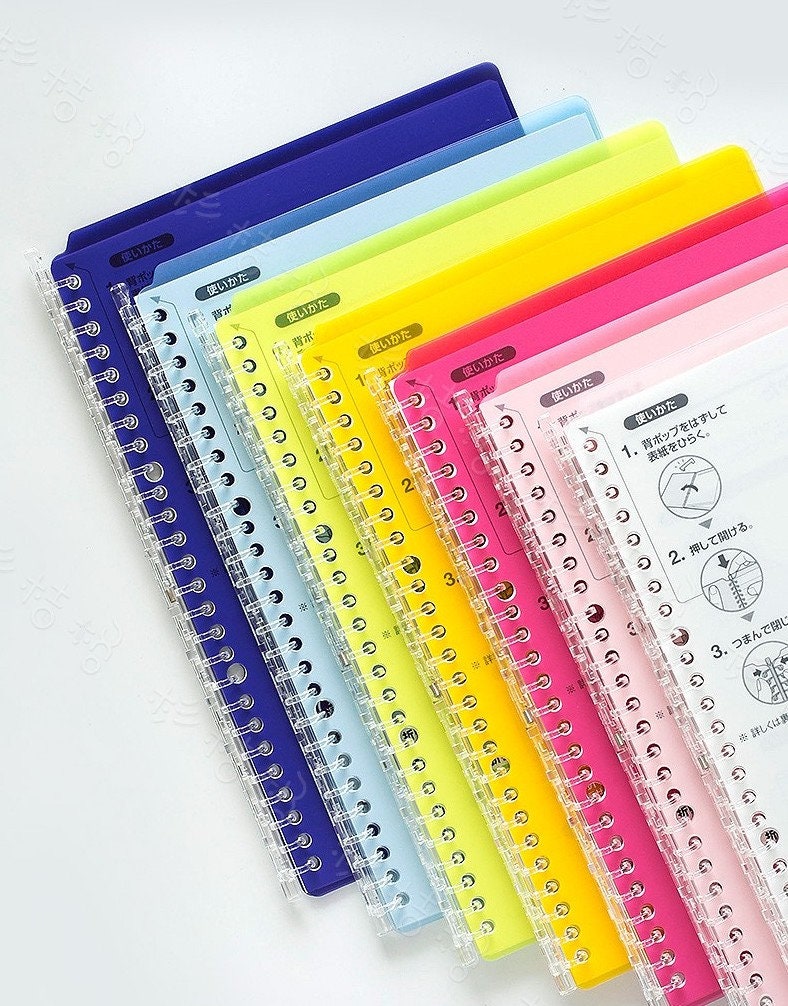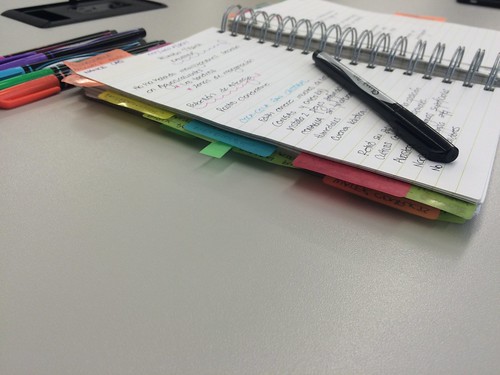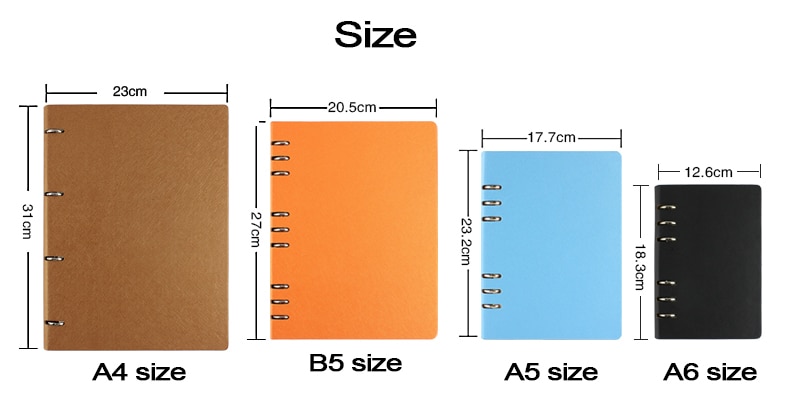

You have to do something with those notes if you want to learn it. The brain is more engaged and you are changing the wiring of the brain as you do it. Writing by hand is much better than typing, even with bad penmanship.
Binder vs notebook note taking code#
If I want to know something I solve problems or write code using it. But my only goal is to keep access to it, not to truly know it. I usually take notes on things by computer. If the latter, then you need to help them learn to be more active and engaged in their learning - as my students were not. Do you just want them to have it available? Or do you want them to be able to truly know it and act on it. So, as an instructor, you should ask yourself what it is that you want the students to be able to do with the information you transmit. But having something in your computer (or on wikipedia) isn't the same as having it in your head. If you lecture and just want the students to transmit your ides to their computers, then just give them the lectures as rich text. I worry, and think the research supports me, that typing notes in class is just mechanical.

I'm pretty sure that court stenographers don't retain anything of the court proceedings they record. In order to learn something you need to be engaged with it, not just watch it pass by. But of course photographic memory isn't true for all but a vanishingly small proportion of our students. I asked one student why, and he just pointed to his head - it's here.
Binder vs notebook note taking how to#
They were in University classes and no one, apparently, had taught them how to learn. I recently had a group of students that didn't take notes at all. They can access it from the library, or any other source of online access. It also helps for the disadvantaged students that may not have laptops to bring to school. Online access allows the student to retrieve it when they need it without having to access it immediately after the lecture. That could be done via Google Drive, or some other online source. What seems to work best for situations involving lots of data, especially where layout and syntax can be significant, is to provide the lecture material in some manner after the lecture has been delivered. I've never allowed them to be used when I lecture, or even during study time unless it's also lab time. I've only been in one classroom where computers were allowed to be on, and it was distracting.

If you're willing to allow it, and school policy does not prohibit it, a third option is audio recording.

Few keyboards are truly silent, and the key noise, even if it's just the sound of fingernails hitting the plastic, can be very distracting to other students. There is one major drawback to laptop note taking in class, however: noise. She also scored better on the fact-based questions than most of the class. Later she was able to translate her doodles better than I could translate my long-hand notes. She drew random-looking doodles, not pictures or pictographs, as the instructor presented. I have personally attended classes with someone who "doodled" their notes. She was able to remember how to spell the word by remembering how she would type it. She was "typing" the word as she spelled it. Half-way through the word I recognized what she was doing. As she spelled the word she was moving her fingers in a weird fashion. Students are not trends they are individuals.Īs an example I encountered today that seems to go against that wisdom, I caught a news piece about a local girl in the Scripps National Spelling Bee. What is true for one student may not be for another. You could either write an explanation of the term in the notes or make a list of key terms that can be very useful when reviewing the terms or practicing for a test or an exam.Neither is better. It makes the terms easier to find when reading through your notes, and also, just the process of actually changing my pen makes me remember the word I wrote a lot better. Use a colored pen to write out important terms: My next tip is to use a colored pen to write out essential terms. I do it because I make a color line around my header, and when I start a new chapter, I change up the color, keeping up with the color theme. Use color codes: My next tip is to color-code your notes based on chapter or topic so that when you want to review your notes on a specific chapter, they're easy to find in your notebook. Also, just keeping a separate notebook for questions and practice problems makes everything a lot more organized. The first tip isn't directly related to writing notes, but it is to keep a separate notebook for all of your subjects just so it's easier to find what you're looking for, and if you prefer using folders or binders instead, then I would suggest maybe having the notes for one or two subjects in each binder.


 0 kommentar(er)
0 kommentar(er)
